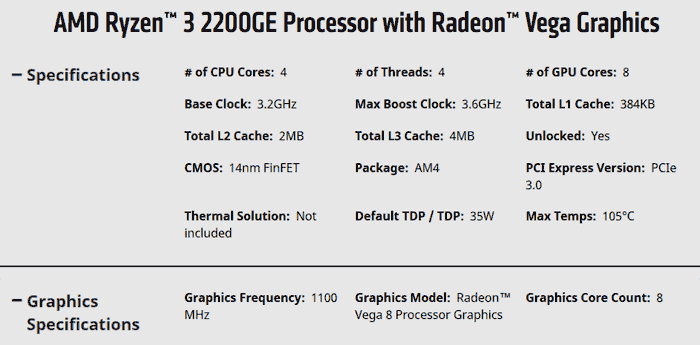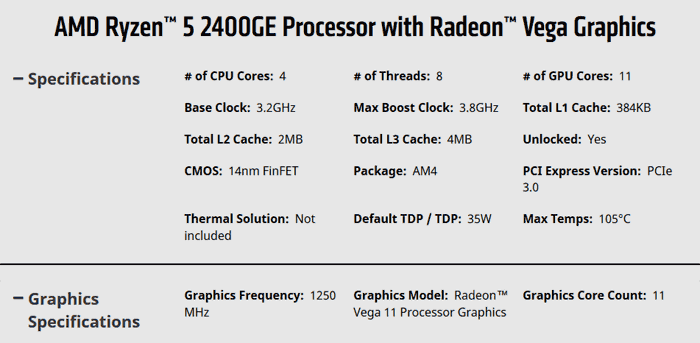A few weeks ago there were reports of Ryzen 3 2200GE and Ryzen 5 2400GE APUs on the way – as corresponding entries were found in motherboard maker compatibility lists. At the weekend these very parts arrived, quietly, as they were listed on the official AMD website. It turns out that the ‘E’ suffix stands for Efficiency.

The new AMD Ryzen 3 2200GE and Ryzen 5 2400GE APUs are, as you might guess, based upon the Ryzen 3 2200G, Ryzen 5 2400G APUs but have been tuned for efficiency. They offer slightly slower clocks, likely some silicon binning, and TDPs of 35W compared with their predecessors with 65W TDPs.

Considering first the AMD Ryzen 3 2200GE, this processor has 4 Zen cores and no SMT. It runs at 3.2GHz base and 3.6GHz boost. The Vega 8 GPU, with 8 cores, runs at 1100MHz. In comparison the Ryzen 3 2200G Zen cores run at 3.5/3.7GHz, with the same speed GPU.

Turning to the AMD Ryzen 5 2400GE, this processor has 4 Zen cores with 8 threads. It runs at 3.2GHz base and 3.8GHz boost. The Vega 11 GPU, with 11 cores, runs at 1250MHz. In comparison, the Ryzen 5 2400G Zen cores run at 3.6/3.9GHz with the same speed GPU.
While the new ‘GE’ APUs, since there has been no associated email or press release, we aren’t sure about availability and pricing. These tuned processors will likely be particularly desirable for those building a PC into an SFF or similar space confined chassis and would be good candidates for HTPC builds, for example.
HEXUS reviewed the AMD Ryzen 5 2400G and Ryzen 3 2200G back in mid February this year, and the pair earned a Good Value award.













